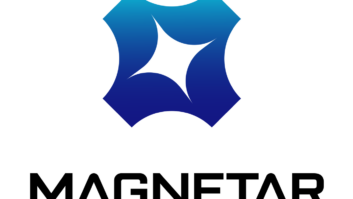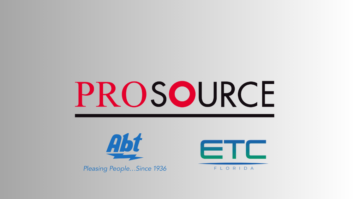LAS VEGAS — Companies from multiple industries remained tight lipped prior to International CES on market launch plans that will touch off a brewing high-definition optical-disc format war.
Backers of the HD DVD format — led by Toshiba, NEC, Universal Studios and others — said they continue to expect a March launch of players and a full compliment of movie titles from three major studios — Universal, Warner Bros. and Paramount. This is despite the fact that Toshiba delayed its previously announced plan to launch the first HD DVD players in Japan by the end of 2005.
The delay resulted from the continued failure to complete specs for the Advanced Access Content System (AACS), which is a digital rights management system used in both the HD DVD and rival Blu-ray Disc (BD) formats.
Meanwhile, members of the Blu-ray Disc Association, which is led by key developers including Sony, Philips, Panasonic, Pioneer and others, is working toward a second quarter 2006 launch of the first BD players. Software has been promised by five major studios, including Sony Pictures, Disney, Fox, Warner Bros. and Paramount.
The BD companies have also suggested early products could include BD recorders and PC drives.
A number of industry analysts and interested parties inside the industry have pointed to Blu-ray Disc as a strong favorite to win the war in the end.
“Blu-ray Disc has momentum behind it now, as opposed to six to 12 months ago when things were more even in studio backing,” said Michelle Abraham, an analyst with market research firm InStat.
Blu-ray Disc advocates point out that the format now has commitments of software support from virtually every major Hollywood studio, except Universal Studios, and has the backing of the majority of the hardware manufacturers in the consumer electronics industry.
But HD DVD defenders point to the support of powerful IT leaders in Microsoft and Intel adding strong political armor to the HD DVD camp. Microsoft has endorsed HD DVD over Blu-ray Disc, citing the former’s nonconflicted mandatory Managed Copy requirements in the AACS system, and its use of the iHD system for interactive applications.
Mark Knox, a spokesman for the HD DVD format, said the optical disc system should enjoy a significant advantage by being first to market and first in people’s minds. He also suggested speculation that Blu-ray will launch in the spring, prior to the launch of the BD-enabled PlayStation 3, could be optimistic.
“Our fundamental advantage comes from the fact that you will be able to buy HD DVD hardware and software for many months before you are going to be able buy BD hardware and software,” Knox said.
Andy Parsons, Pioneer advanced technologies senior VP and key BD spokesman, implied HD DVD’s window of opportunity could be shorter than Knox expects.
“AACS isn’t done yet, so they have the same issues as we have since they are going to use the same content protection,” Parsons said prior to Toshiba’s Japan launch delay. “The BD-ROM physical format is done. The application layer part is just about finished. How we bind it all together with content protection is what’s remaining to be resolved.”
Parsons said BD supporters are not worried about the impact of an early HD DVD lead.
“People are going to look at [HD DVD] and say, ‘this is fine, but I want more content choices and I want more hardware choices,’” said Parsons. “That’s all going to become clear when Blu-ray launches at CES. It’s really sort of a no-brainer.”
Supporters have long pointed to Blu-ray’s capacity advantage — 50GB for single-sided dual-layer media and up to 100GB for a four-layer disc, which is still in development.
HD DVD, meanwhile, has a single-layer capacity of 15GB and a dual-layer capacity of 30GB. Toshiba has also announced that a triple-layer disc would be available down the road, offering up to 45GB of storage.
HD DVD manufacturers have suggested that HD DVD players will be available at launch with recording devices coming later. However, HD DVD PC drives for laptops and desktop systems will be available shortly, Knox said
Blu-ray Disc also claims a security advantage over HD DVD. The format includes multiple layers of content protection including AACS, followed by two other optional digital rights management systems with BD+ and BD ROM Mark.
“AACS, which was developed by a group of companies including IBM, Intel, Microsoft, Warner Bros., Toshiba, Disney, Panasonic and Sony, has the ability to revoke any number of levels of devices. In theory it can revoke down to a fairly small number of products that might have a problem,” explained Parsons.
“BD+ is not as much about revocation as it is about being able to tell if a hack is present,” he said. “If there is a player that is a known hack then we can make sure it is not allowed to be utilized — the hack is essentially disabled.”
“If there is a known hack that affects a large number of players in a particular model number, and BD+ is aware of that hack, then it can look in the player and see if the hack is being used. If it is not, then it is not going to interfere,” Parsons stated.
BD ROM Mark is a way to prevent illegal mass duplication by placing an invisible identifier on the disc to allow the player to verify that the disc is legitimate, he said.
Meanwhile, advocates for HD DVD have hinted at a few surprises up their sleeves for International CES, and point out that while they may not have the numbers of supporters behind them that BD claims, it has two very powerful ones in Microsoft and Intel.
In the weeks leading up to CES, PC manufacturer Hewlett-Packard, once a strong Blu-ray Disc ally, announced it would also now add support for HD DVD, citing the endorsements of Microsoft and Intel. The announcement gave HD DVD a new stronghold in the IT arena.
“When Windows Vista comes out, it will natively support HD DVD. It will be totally plug-and-play, without the need to install any additional drivers or software,” said Knox, adding that HD DVD will be featured in the Microsoft booth at International CES, “as well as a few others you might not expect.”
Prior to the HP announcement, InStat’s Abraham told TWICE that if more IT companies were to throw in with HD DVD, the format war would become more evenly matched again.
“If either Dell or HP announces support for HD DVD, the market would be split again because the real potential for any next-generation format is as both a consumer and an IT play,” she said.
Microsoft, Intel and most recently HP endorsed HD DVD primarily because its spec mandates the iHD interactivity system (Blu-ray uses BD-Java) and the mandatory Managed Copy system that will allow content to be copied for personal use and moved around to different devices on a home network, including PCs. At the same time, it will also protect against illicit mass replication and redistribution over the Internet.
HD DVD format developers have avoided adding additional digital rights management systems to AACS — such as BD+ — because they feel AACS offers ample protection and that BD+ could enable studios to interfere with or defeat Managed Copy requirements, said Knox.
Parsons said “that is not the case. If AACS requires mandatory managed coping, then Blu-ray will support that.”
“If someone figures out how to hack something, then BD+ gives us potential ways that we would not hold innocent bystanders responsible for a few bad eggs that might be out there. We could address a single player and not have to revoke an entire model,” he said.













